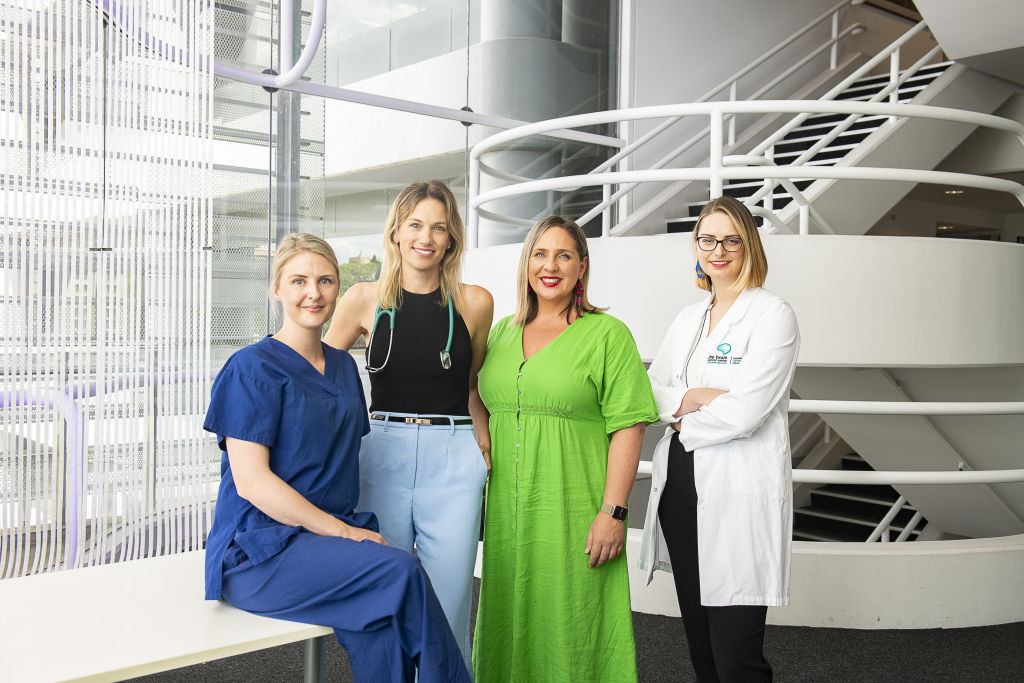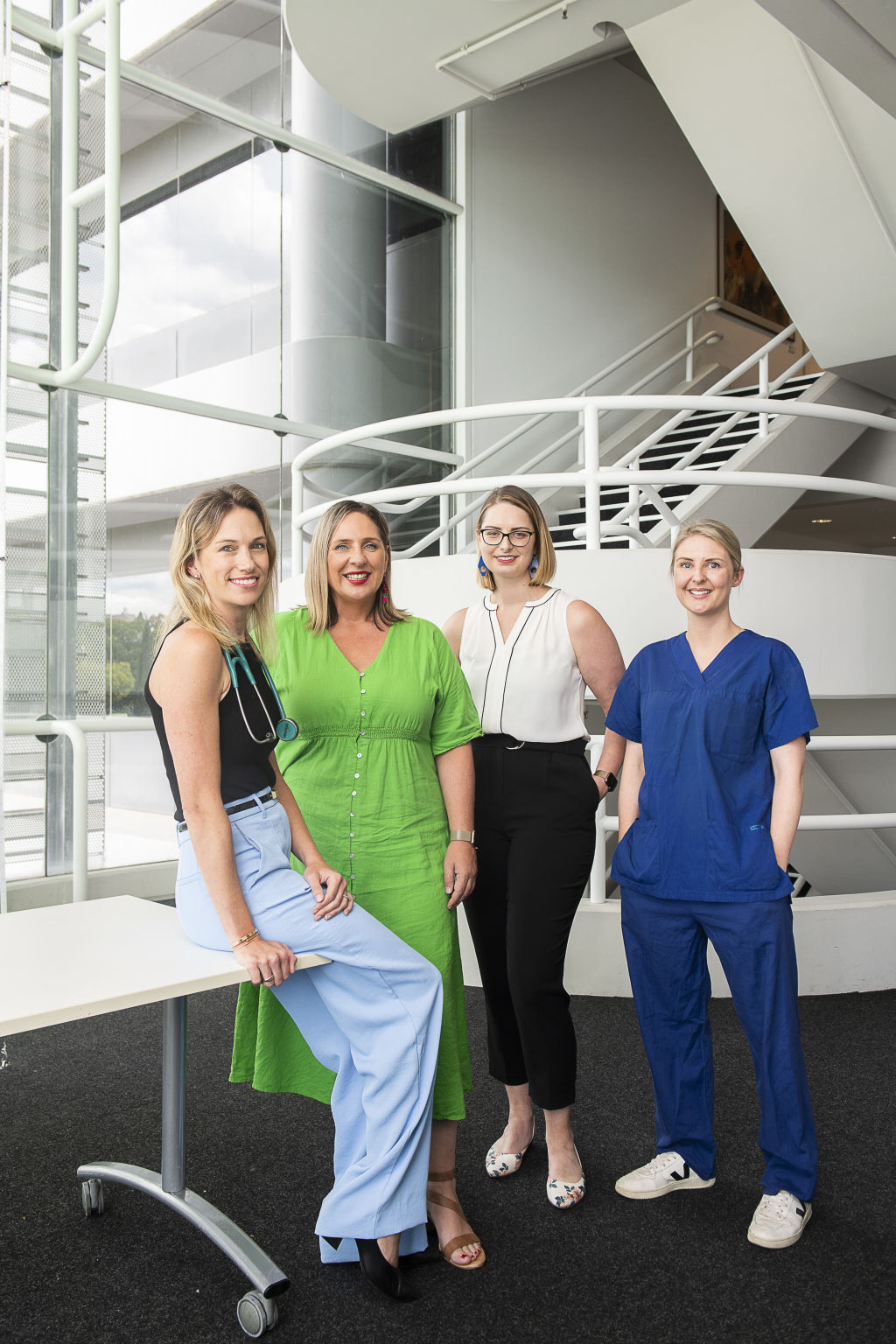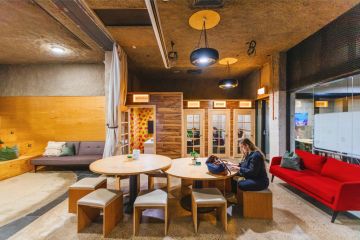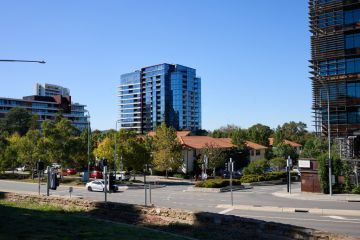The women at Carrie Bickmore's The Brain Cancer Centre are leaders in treatment and research

When Carrie Bickmore emotionally donned a beanie in her Gold Logie speech in 2015 she raised the profile of brain cancer exponentially and set in motion a groundswell of support that has had a profound impact, not only on patients but the incredible specialists and scientists who are working to better understand and treat the insidious disease.
That beacon of hope has enabled four incredible women to pursue their passions through The Brain Cancer Centre, founded by Carrie’s Beanies 4 Brain Cancer and established in partnership with the Walter and Eliza Hall Institute of Medical Research (WEHI).
Dr Sarah Best, Dr Heidi McAlpine, Associate Professor Misty Jenkins and Dr Lucy Gately are among a team of “brainiacs” helping to solve the puzzle and support patients through brain cancer.
Each one of them has defied the stereotype and discrimination to become leaders in a field historically dominated by men. On this International Women’s Day their contribution is being recognised and celebrated.
Working in a high pressure, sometimes emotionally charged profession while maintaining a life outside their work requires a unique skill set and resilience, which they all admit to finding a challenge at various times. But their commitment to their roles and an unwavering desire to help people is what drives them.
Dr Sarah Best – laboratory head, The Brain Cancer Centre and WEHI
What inspired you to enter the field?
My interest in cancer biology stemmed from personal experience in my family, where we have a high rate of different varieties of cancer. This passion to understand biology and identify what makes a normal cell change into a cancer cell has driven my career, which has spanned breast cancer, skin cancer, lung cancer and brain cancer.
Have you had any challenges in your role as a female?
I’ve had the frustrating experience of feeling challenged as a female researcher while working overseas. I remember feeling my ideas were not always respected but then seeing the same idea raised by a male colleague and being valued.
What would you say to young women considering entering your profession?
Becoming a cancer researcher allows you to follow your passion, problem solve and work towards solving an incredibly challenging problem in medicine: how to best treat patients so that cancer is no longer a terminal illness.
How do you manage work-life balance?
The key for work-life balance for me is to manage the stress from work coming back home with me. Cycling home does wonders and allows me to clear my head. But nothing will beat discussing issues and challenges with friends over a good meal, to help me reset and balance emotions.
Dr Heidi McAlpine – neurosurgery registrar, the Royal Melbourne Hospital and PhD candidate, the Florey Institute
What inspired you to enter this field?
One of the most challenging parts of working in neurosurgery is giving brain cancer patients their diagnosis – particularly because I know the efficacy of currently available treatments is limited. Working towards a better understanding of brain cancer, and more efficacious treatments is important to me, and is what inspired me to undertake research into brain cancer.
Have you had any challenges in your role as a female?
The logistical challenges of working as a surgeon and breastfeeding were difficult to navigate, but I was fortunate to be very well supported by the consultant surgeons I work with and was able to express between cases and breastfeed both my children.
What would you say to young women considering entering your profession?
Neurosurgery is a wonderful fulfilling career. It’s hard work, I am busy, but I love my life and wouldn’t change a thing. Also, you may have been told that neurosurgery is incongruous with motherhood, be relieved to know this was mistakenly told to you by someone who was not a surgeon and a mother, so they probably didn’t know.

Associate Professor Misty Jenkins – laboratory head, The Brain Cancer Centre and WEHI
What inspired you to enter this field?
I was inspired to enter the field because I wanted to make a difference in the lives of patients with cancer. I was particularly drawn to immunotherapy because of its potential to harness the power of the immune system to fight cancer and the exciting advances that have been made in this field in recent years.
What percentage of women work in your field?
As of 2021, women make up less than 35 percent of scientific leadership roles in Australian research institutes and universities. This represent an increase from previous years, but there is still significant work to be done to improve gender diversity and inclusion in these leadership positions.
What would you say to women considering entertaining your profession?
Science is really fun and making discoveries is the best feeling in the world. I would encourage young women to pursue their passion for science, regardless of any gender or cultural barriers that may face. I would also advise them to seek out mentors and allies who can offer support and guidance and to prioritise their own wellbeing and work-life balance.
Dr Lucy Gately – medical oncologist, Alfred & Cabrini hospitals and clinician researcher, WEHI
What inspired you to enter this field?
I always saw oncology as a speciality in which you managed a person. I don’t treat a cancer, I treat a person with cancer, and that person may have other health issues, family circumstances, or life experiences compared to the next. Everyone is unique and so it allows for a holistic, or whole person, approach. Being diagnosed with cancer is a stressful time and it’s a privilege that patients and their families allow me to share that journey with them and support them as best I can. I have always been fascinated by the brain – it is the master control room. Despite being so important, we still have so much to learn, which makes it an exciting field to research.
What do you love about your job?
I love the mixture of clinical and research, and the interaction with people with brain cancer that spans and connects the two parts. My clinical work helps me to understand the gaps in patient care and my research helps me to find ways to fill those gaps. Without either aspect, I don’t think my career would be as fulfilling.
Donations to The Brain Cancer Centre can be made here
We recommend
States
Capital Cities
Capital Cities - Rentals
Popular Areas
Allhomes
More







